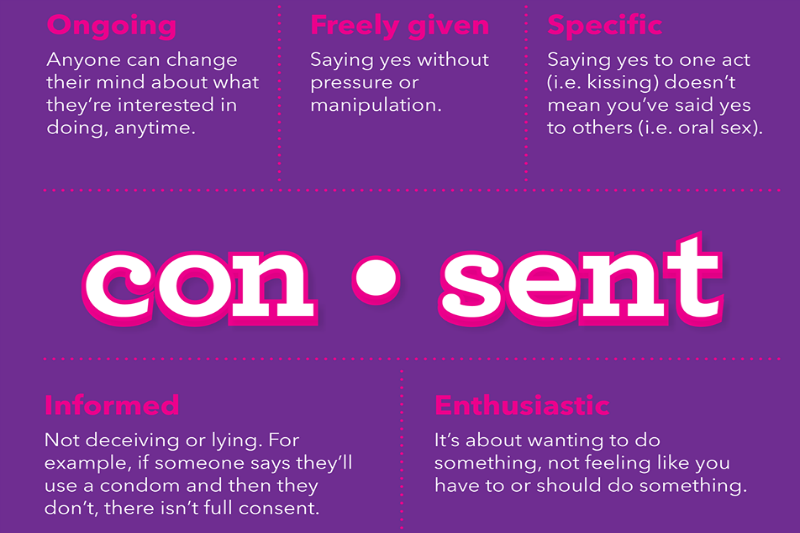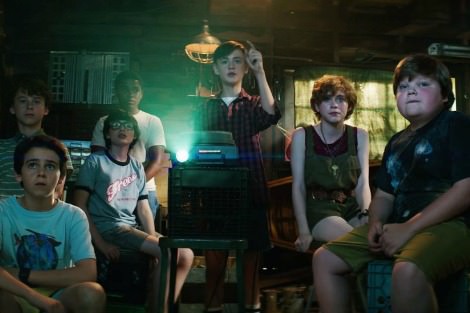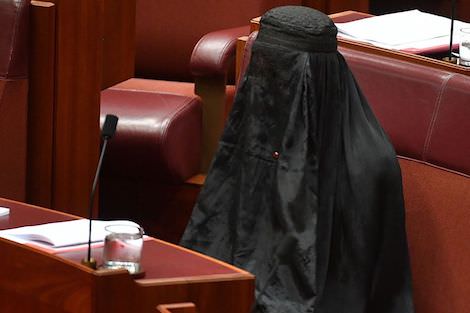Keywords: Female
There are more than 200 results, only the first 200 are displayed here.
-

RELIGION
- Frank Brennan
- 26 October 2017
9 Comments
The first thing to note about this 500th anniversary of the Reformation is that it is the first centenary celebration or commemoration that we have been able to share together and without rancour.
READ MORE
-

INTERNATIONAL
- Megan Graham
- 19 October 2017
16 Comments
Most women know and have experienced the fact that there are a substantial number of men in society who are willing to use their power, physical or otherwise, to get what they want sexually from women. Which is why so many of us, myself included, have responded to the Weinstein story with sadness, but not surprise.
READ MORE 
-

AUSTRALIA
- Neve Mahoney
- 18 October 2017
2 Comments
The phrase 'no means no' has been bandied about for so long that is has become almost cliché. For many years, it was a great tool for explaining the basics of consent. If someone says no to something, don't do it. But 'no means no' is a tagline, not the start and end of the conversation, and there are obvious gaps in a 'no means no' framework.
READ MORE 
-

RELIGION
- Rachel Woodlock
- 15 September 2017
9 Comments
As the mum of a 13 year old daughter, I'm trying to prepare her for adulthood in a world that will, at times, judge her for being female. She's at the beginning of her adolescent journey, when the future seems to hold so much promise but also new dangers. The one that gives me pause, in the odd moment when I allow myself to think about it, is what I can tell her about protecting herself from bad men who might want to harm her, without scaring her into believing all men are potential rapists.
READ MORE 
-

ARTS AND CULTURE
- Tim Kroenert
- 14 September 2017
1 Comment
When it comes to creative license, a necessity when adapting a novel of the scope of IT, every decision comes with costs and benefits. In an era where creators of popular entertainment are increasingly, and rightly, held to account over matters of representation, it is strange and disappointing that decisions would be made where the cost is to reduce a major, richly written character to a mere side note, and in so doing to diminish diversity, in a story that already sorely lacks it.
READ MORE 
-

RELIGION
- Rachel Woodlock
- 24 August 2017
29 Comments
For an item of clothing that virtually no Australian Muslims wear, the burqa sure gets plenty of airtime. I've never seen the (usually blue) all-enveloping cloak with the small material grill for sale in any of the bricks-and-mortar Islamic clothing stores I've visited. Short of travelling to Afghanistan, the only place I can think where an anti-Islam protester might get one is by searching Halloween costume listings on eBay or Etsy.
READ MORE 
-

MEDIA
- Neve Mahoney
- 27 July 2017
12 Comments
It was recently announced that the thirteenth iteration of the main character in Doctor Who will be played by Jodie Whittaker. A woman. In 2017, the casting of a white woman in a major TV role is hardly revolutionary, except that the role is the Doctor, a regenerative alien who can take on the appearance of anyone, but has for 12 iterations tended towards the persona of a quirky British white man.
READ MORE 
-

ARTS AND CULTURE
- Tim Kroenert
- 19 July 2017
This is a deliberate subversion of typical, destructive Western tropes by Coppola, in which it is the male character who is objectified by the female gaze. In this she probes how this particular man either thrives under or is stymied by such objectification. John is more than aware of the sexual and romantic stirrings he has aroused among his new companions. But in his assumption that his objectification is empowering, he has utterly underestimated the emotional and psychic complexities of those doing the objectifying.
READ MORE 
-

AUSTRALIA
- Sara Vukojevic
- 18 July 2017
10 Comments
I couldn't believe it. It was the most obvious example of street harassment ever. Builders? Check. Cheesy pickup lines? Check. Innuendos? Check. Trying to prevent a woman from moving away? Check. It could've been a lot worse. Something worse happened to me in California. But this situation got my heart beating. It's six, large, capable men. They can do anything they want to me. I can't prevent it from happening if they decide they need to do more than look.
READ MORE 
-

ARTS AND CULTURE
- Tim Kroenert
- 21 June 2017
2 Comments
Catherine arrives a new bride, with husband Alexander, to take up residence in his luxurious rural home. Quickly we get a sense of how little control she has over her destiny. Alexander demands she remain inside the house at all times; when one evening she wishes to go to bed early, her father-in-law orders her to remain awake for her husband. In the life of the household, she is merely an attractive object. Yet like her Shakespearean forebear, she is not averse to manipulation and violence in pursuit of her goals.
READ MORE 
-

ARTS AND CULTURE
- Tim Kroenert
- 07 June 2017
Abbie introduces Jamie to the paired liberating movements of punk rock and second-wave feminism. Both lead to illuminating experiences, from his first rock concert, use of alcohol, and kiss, to being beaten for casting aspersions on a peer's grasp of female sexual anatomy. His relationship with Julie on the other hand provides a difficult counterpoint. His peevish concern over her promiscuity is largely possessive; his theoretical understanding of women's agency falling down in the face of adolescent hormones.
READ MORE 
-

RELIGION
- Stephen de Weger
- 07 June 2017
69 Comments
The sexual revolution and Vatican II was a release from 'parental control' resulting, for many, in the sudden emergence of full-blown psychological adolescence with its risk taking, experimentation and lack of a fully developed sense of responsibility. Many clergy either slid into adolescent liberalism or, collapsing under new adult demands of freedom, retreated into reactionary conservatism. Others grew up and moved on, into new ways of being 'celibate'. Clergy misconduct is found in all three groups.
READ MORE 